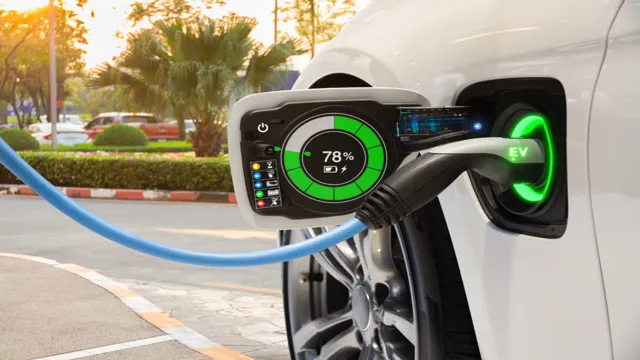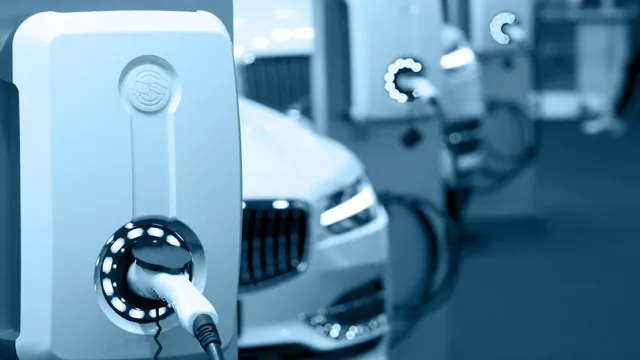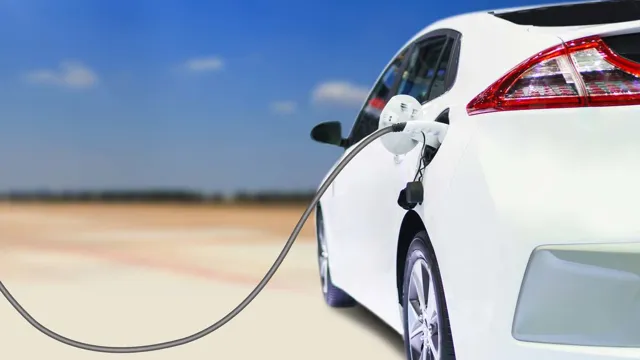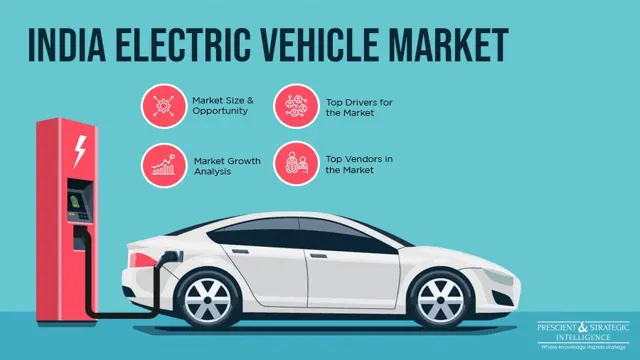Switch to Electric Company Cars: Exploring the Benefits and Tax Implications of the Benefit-in-Kind Scheme
As more people become aware of the negative impact of fossil fuels, the popularity of electric cars is on the rise. Aside from being environmentally friendly, electric cars are proving to be a cost-efficient choice for conscientious drivers. One of the most significant benefits of owning an electric car is the considerable tax savings that come with it.
In fact, electric car benefit in kind can potentially save you thousands of dollars annually. It’s a win-win situation as not only will you be able to reduce pollution and emissions, but you’ll also be keeping more money in your pocket. In this blog, we’ll explore the benefits of electric cars and how they can help you save on taxes.
Are you ready to make the switch?
What is Benefit in Kind (BIK)?
If you’ve been provided with a company car, you may have heard the term “benefit in kind” (BIK) thrown around. What is BIK exactly? Essentially, it’s the value of any benefits you receive as an employee in addition to your salary. This can include a company car, healthcare, bonuses and more.
When it comes to company cars, the benefit in kind (BIK) tax is designed to reflect the carbon emissions of the vehicle you drive. In recent years, electric and hybrid cars have become increasingly popular due to their eco-friendliness and low emissions, resulting in lower tax rates for the employee. So, when it comes to a company car electric benefit in kind, it’s worth considering the option of an electric or hybrid vehicle to potentially save you money on tax and reduce your carbon footprint at the same time.
Learn about BIK and its impact on company cars
Benefit in Kind (BIK) refers to the value of any perks and benefits that an employee receives on top of their salary as part of their employment package. For company car owners, BIK is a tax that employees must pay on the personal use of their company car. The rate of BIK is based on a percentage of the car’s list price and the employee’s income tax bracket.
Thus, the higher the car’s list price, the higher the tax rate, resulting in a higher tax bill for employees. BIK taxes also take into account the car’s CO2 emissions, with lower emissions resulting in a lower tax bill. BIK taxes are a crucial consideration when selecting company cars as they can significantly impact the overall cost of owning and running a vehicle.
By understanding how BIK works, employers can choose more tax-efficient cars and employees can make informed decisions about the personal use of their company car, avoiding unexpected tax bills.

Why go electric?
When it comes to choosing a company car, going electric has never had more benefits – especially when you consider the electric benefit in kind (BIK) tax rate. That’s because the UK government is encouraging businesses to transition to electric vehicles (EVs) by offering lower BIK rates on these cars. The BIK is the percentage of a car’s value that determines how much tax an employee will pay on it.
For example, if you’re a 20% taxpayer and drive a petrol or diesel car, you would pay 20% tax on the car’s value. But if you go electric, the BIK rate is currently set at 1%. So, not only will you be reducing your company’s carbon footprint, but you’ll also save money in the long run.
But the savings don’t stop there. EVs are increasingly cheaper to run than their fossil fuel counterparts as electricity prices continue to fall. Plus, the maintenance costs are lower, as there are fewer moving parts in an EV.
So, if you’re in the market for a new company car, going electric could be one of the smartest moves you make.
Environmental and economic benefits of electric cars
If you’re wondering why you should switch to an electric car, the answer is clear: they offer a range of benefits for the environment and your wallet. First and foremost, electric cars have zero emissions, which means that you’re contributing to a cleaner air and reducing your carbon footprint. This is especially important given the dire impact of climate change on the planet.
Furthermore, electric cars are cheaper to maintain because they have fewer moving parts than traditional vehicles and require less frequent oil changes. You’ll also save money on fuel costs since charging an electric car is much cheaper than filling up with gasoline. Plus, many jurisdictions offer incentives for purchasing an electric car, such as tax credits and reduced registration fees.
Overall, making the switch to an electric car is a win-win situation that benefits both the environment and your wallet in the long run.
Data example: Money saved with electric company cars vs conventional cars
Electric cars have many benefits when compared to conventional cars, including sustainability, lower noise pollution, and cost-effectiveness. One way in which electric cars can save you money is through their reduced fuel consumption. According to data from a study conducted by the automotive research company Edmunds, electric company cars can save an average of $3,000 per year on fuel costs compared to their gasoline counterparts.
This saving can be even higher if you charge your electric car at a rate lower than the peak utility periods. Additionally, electric car users can benefit from tax incentives and rebates offered by both federal and state governments, further reducing the overall cost of owning an electric car. Whether you are concerned about the environment, looking to reduce your fuel expenses, or simply want a more tech-savvy car, switching to an electric car could be the smart choice for you.
So, why not go electric and save some money while you’re at it?
Calculating your electric car BIK value
If you’re considering switching to an electric company car, the benefit in kind (BIK) value is an important factor to calculate. BIK is a tax that employees pay on company perks such as a car, and it’s based on the car’s value, CO2 emissions and fuel type. In the UK, electric cars have a lower BIK rate than petrol or diesel cars, making them a more cost-effective option.
However, it’s important to ensure that you have all the necessary information to calculate your BIK value accurately. This includes the list price of the car, any optional extras, and the specific electric range of the car. You can then use an online BIK calculator to get an estimate of your tax liability, but it’s always best to speak to a tax advisor for a comprehensive breakdown.
It’s worth noting that the BIK rates will change over the next few years, so ensure you stay up to date with any changes. Ultimately, switching to an electric company car can potentially save you money on tax and offer a more sustainable mode of transportation for your job.
Understand how BIK rates are calculated for electric vehicles
If you’re considering an electric car as your next vehicle and want to know how much you’ll pay in terms of company car tax, it’s essential to understand how Benefit-in-Kind (BIK) rates are calculated. The BIK percentage takes into account the list price of the car and its CO2 emissions. As electric cars emit zero emissions, they currently have a significantly lower BIK percentage than petrol or diesel cars.
The BIK rate for electric vehicles is 0% in 2020/21, but it’s set to increase to 1% in 2021/22 and 2% in 2022/2 This helps make them an excellent choice for company car drivers as they can save a substantial amount of money compared to their petrol and diesel alternatives. Remember that BIK rates can vary depending on the make and model of the vehicle you choose, so it’s essential to do your research to avoid any unexpected costs.
By choosing an electric car, you’ll not only benefit from lower BIK rates but also save money on fuel and reduce your carbon footprint.
Data example: Electric car vs conventional car BIK rates comparison
If you’re considering purchasing an electric car, one factor to consider is the Benefit-in-Kind (BIK) value. BIK is the tax paid on benefits that employees receive in addition to their salary, such as a company car. The BIK value of an electric car is lower than that of a conventional car due to its eco-friendliness and lower carbon emissions.
To calculate the BIK value of an electric car, you’ll need to know its list price and CO2 emissions. The list price is the cost of the vehicle before any discounts or incentives are applied, and the CO2 emissions are measured in grams per kilometer (g/km). The lower the CO2 emissions, the lower the BIK value.
For example, a Tesla Model 3 has a list price of £40,490 and emissions of 0 g/km, resulting in a BIK value of 1%. On the other hand, a petrol-powered Audi A4 with the same list price and emissions of 107 g/km has a BIK value of 32%. This means that the employee would pay significantly less tax on the electric car benefit compared to the conventional car benefit.
Making the switch: Factors to consider
When considering the switch to an electric car as a company car, there are several factors to keep in mind. One of the most significant considerations is the electric benefit in kind tax. This tax is charged based on the value of the car and the CO2 emissions it produces, which means that electric cars typically have a lower benefit in kind tax rate.
Additionally, it’s important to evaluate the charging infrastructure available in your area, as well as the range of the car and its suitability for your business needs. Other factors to consider include the overall operating costs, the potential savings on fuel and maintenance, and the potential environmental benefits. Taking all these factors into account can help you make an informed decision about whether switching to an electric company car is the right choice for your business.
Things to think about when transitioning to electric company cars
When considering transitioning to electric company cars, there are several factors to keep in mind. First and foremost, it’s important to determine if there is adequate infrastructure for charging electric vehicles in your area. This includes not only public charging stations but also the ability to install charging stations at your workplace or employee homes.
Another important factor to consider is the range of the electric vehicles you are considering. It’s crucial to determine if the range of the vehicles will meet the needs of your company’s daily operations. Consider the driving habits of your employees and the typical distances they travel in a day.
You will also want to look into any incentives or tax breaks available for purchasing electric company cars. These incentives can help offset the higher upfront cost of electric vehicles and make them a more feasible option for your company. Don’t forget to factor in the cost savings associated with electric vehicles.
They require less maintenance and have significantly lower fuel costs than traditional gas-powered vehicles. Additionally, electric vehicles have a longer lifespan, which can further offset their higher upfront costs. Overall, transitioning to electric company cars can offer numerous benefits for your company, including reduced carbon emissions and cost savings.
However, it’s important to carefully consider all the factors involved and ensure that electric vehicles are a good fit for your company’s specific needs.
Data example: Companies that have made the switch successfully
While the idea of making the switch from traditional practices to sustainable ones may sound daunting, there are a number of companies who have already made the transition successfully. Big names such as Patagonia, Interface, and Tesla have all implemented sustainable practices into their operations, from using renewable energy sources to reducing waste and emissions. However, making the switch is not just a matter of copying what has worked for others.
Different businesses face different challenges and factors must be considered such as the availability of sustainable products, cost implications, and potential changes in consumer behaviour. When making the switch to sustainable practices, it’s important to weigh all these factors and consult with experts in the field to determine the best way forward. With the right steps taken, any business can realize the benefits of going green and join the growing number of companies committed to a more sustainable future.
Incentives and support
One of the greatest incentives for companies to switch to electric company cars is the reduction in benefit-in-kind tax paid by employees. Benefit-in-kind tax is a tax paid by employees on any additional benefits they receive from their employer, such as a company car. Historically, the benefit-in-kind tax on electric cars has been much lower than that of their petrol or diesel counterparts, making them a financially attractive option for both the company and the employee.
Additionally, many governments offer grants and rebates for electric cars and charging infrastructure, making them even more financially feasible for companies. Investing in electric company cars not only reduces the environmental impact of the company’s fleet but can also save money in the long run through reduced tax payments and grants.
Discover available incentives and support for electric car adoption in your area
If you’re considering purchasing an electric car, there are many incentives and support options available to make the transition as easy as possible. Depending on where you live, you may qualify for federal or state tax credits, rebates, or grants that can significantly reduce the cost of the vehicle. Additionally, there may be programs in place to help with the installation of charging stations in your home or workplace.
Some cities also offer HOV lane access and free or discounted parking for electric vehicles. It’s essential to research what incentives are available in your area, as they can vary widely depending on location. Taking advantage of these incentives and support programs can make the switch to electric more affordable and convenient, ultimately benefiting both you and the environment.
Conclusion: The future of company cars is electric
In conclusion, opting for a company car that is electric not only benefits the environment but also benefits your wallet. The “benefit in kind” tax is significantly lower for electric cars, meaning you get to keep more of your hard-earned money. Plus, nothing says “I care about the planet” quite like cruising around in a sleek and sustainable vehicle.
So go ahead, make the smart choice and switch to an electric company car – your bank account and the planet will thank you!”
FAQs
What is a company car benefit in kind?
A company car benefit in kind is a taxable benefit received by an employee when they are provided with a car by their employer for personal use. The benefit is calculated based on the car’s value, CO2 emissions, and fuel type.
Does the benefit in kind change if the company car is electric?
Yes, the benefit in kind for electric cars is lower than for petrol and diesel cars. For the tax year 2021/22, electric company cars have a benefit in kind rate of 1%, compared to petrol and diesel cars which start at 20%.
How does the benefit in kind affect an employee’s income tax?
The benefit in kind is added to an employee’s taxable income and is subject to income tax. The higher the value of the benefit in kind, the more an employee will pay in income tax.
Can an employee opt-out of a company car benefit in kind?
Yes, an employee can opt-out of a company car benefit in kind if they do not use the car for personal use. However, the employee must provide evidence to the HMRC that they have not used the car for personal use.



